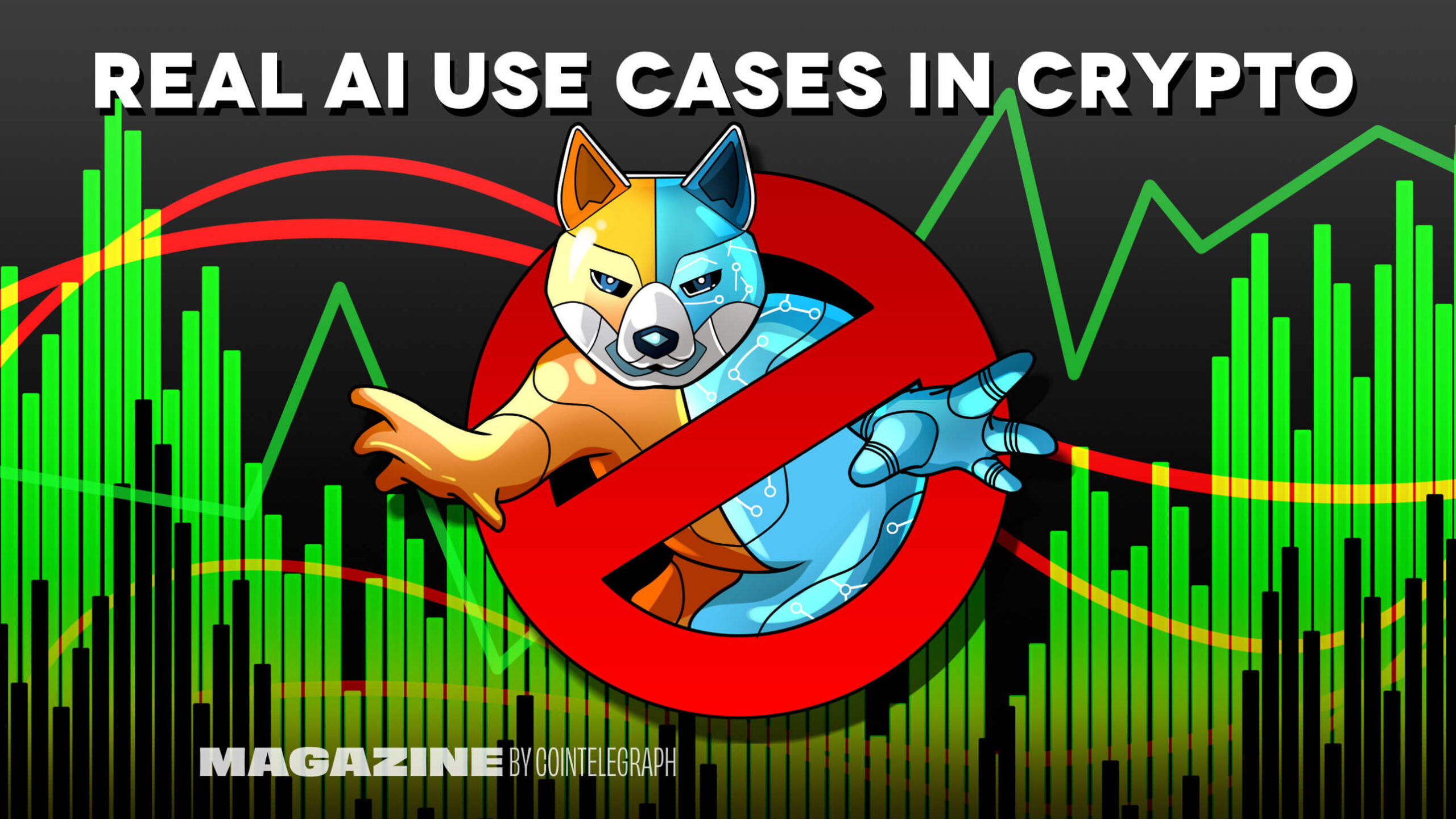We’re rolling out genuine use cases for AI and crypto each day this week — including reasons why you shouldn’t necessarily believe the h
We’re rolling out genuine use cases for AI and crypto each day this week — including reasons why you shouldn’t necessarily believe the hype. Today get two for the price of one: Blockchain based AI marketplaces, and financial analysis.
It may not seem like the most exciting use case blending AI and crypto, but both Near co-founder Illia Polosukhin and Framework Ventures founder Vance Spencer cite blockchain-based marketplaces that source data and compute for AI as their top pick.
AI is an incredibly fast-growing industry requiring ever-increasing amounts of computing power. Microsoft alone is reportedly investing $50 billion into data center infrastructure in 2024 just to handle demand. AI also needs enormous amounts of raw data and training data, labeled into categories by humans.
Polosukhin believes decentralized blockchain-based marketplaces are the ideal solution to help crowdsource the required hardware and data.
“You can use [blockchain] to build more effective marketplaces that are more equal,” he tells Magazine, explaining that AI projects currently need to negotiate with one or two big cloud providers like Amazon Web Services. Still, it’s difficult to access the required capacity due to a shortage of Nvidia’s A100 graphical processing units.


Spencer also cites blockchain-based marketplaces for AI resources as his current number one use case.
“The first one is sourcing actual GPU chips,” he says. “Where there’s a big shortage of GPU chips, how do you source them [without] actually having a network that sources and provides and bootstraps a market?”
Spencer highlights Akash Network, which offers a decentralized computing resources marketplace on Cosmos, and Render Network, which offers distributed GPU rendering.
“There are some pretty successful companies that actually do it at this point that are protocols.”
Another example of a decentralized marketplace offering cloud computing for AI is Aleph.im. Token holders in the project are able to access computing and storage resources to run projects.
Libertai.io, a decentralized large language model (LLM) is being run on Aleph.im. While you might think decentralization would slow an AI down to the point where it’s unable to function, Aleph.im founder Moshe Malawach explains that’s not the case:
“This is the thing: for one user the whole inference (when you generate data using a model) is running on a single computer. The decentralization comes from the fact that you get on random computers on the network. But then, it’s centralized for the time of your request. So it can be fast.”
Another blockchain-powered AI marketplace is SingularityNET, which offers various AI services — from image generation to colorizing old pictures — that users can plug into models or websites.
Read also
Features
Bitcoin: A Peer To Peer Online Poker Payment System by Satoshi Nakamoto
Features
Play2Earn: How Blockchain Can Power a Paradigm Shift in Building Game Economies
An emerging blockchain based AI marketplace that Spencer is super excited about is tokenizing and trading AI models. Framework has invested in the Super Smash Brothers-like fighting game AI Arena, where users train AI models that battle each other. The models are tokenized as nonfungible tokens and can be bought, sold or rented. “I think that’s really cool,” he says. “It’s interesting having the crypto native monetization, but also ownership of these models.”
“I think one day, probably some of the most valuable models — some of the most valuable assets on-chain — will be tokenized AI models. That’s my theory, at least.”
Don’t believe the hype: You can currently source components, data and compute via traditional Web2 marketplaces.
Bonus use case: Financial analysis
Anyone who has tried to interpret the ocean of data produced by on-chain financial transactions knows that although it’s one thing to have an immutable and transparent record, it’s quite another to be able to analyze and understand it.
AI analytics tools are perfectly suited to summarizing and interpreting patterns, trends and anomalies in the data, and they can potentially suggest strategies and insights for market participants.
For example, Mastercard’s CipherTrace Armada platform recently partnered with AI firm Feedzai to use the technology to analyze, detect and block fraudulent or money laundering-related crypto transactions across 6,000 exchanges.
Elsewhere, GNY.io’s machine learning tool attempts to forecast…
cointelegraph.com

COMMENTS